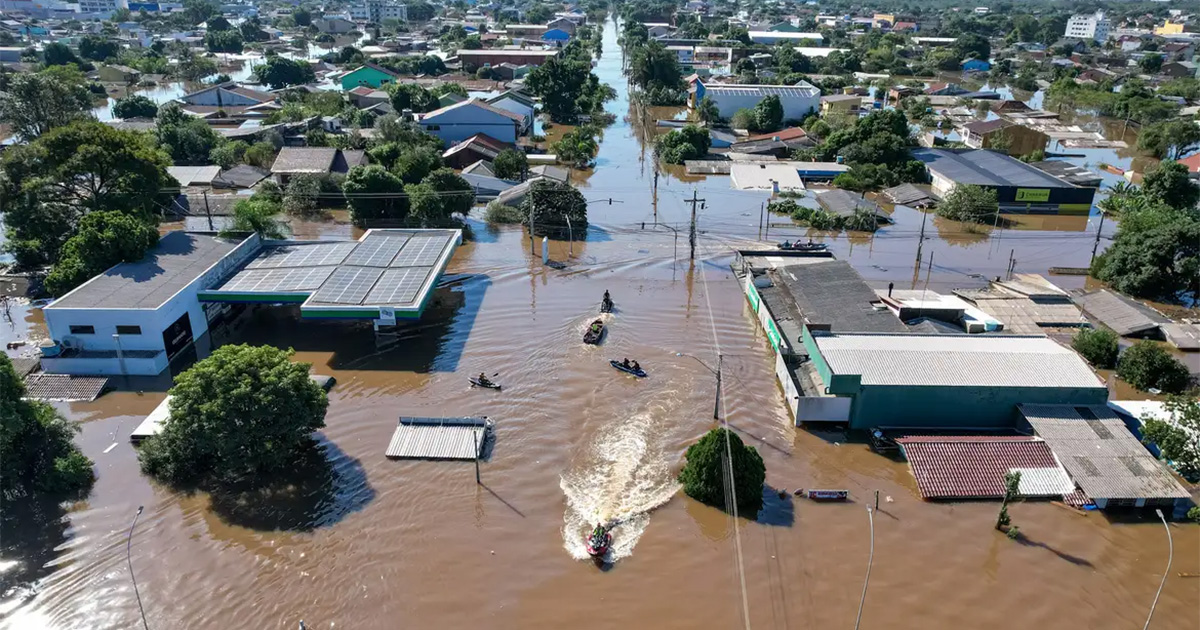
According to the National Confederation of Municipalities, the loss in the agricultural sector in Rio Grande do Sul, victimized by the floods, exceeds R$ 1.3 billion. The professor at the Department of Plant Production at the Luiz de Queiroz College of Agriculture at USP, Giovana Ribas, explains the consequences of the disaster in that State. She states that “the loss, especially when we talk about grains, was really huge”. Giovana also points out structural consequences and makes projections of how the consequences of the disaster will be felt in the future of agriculture.
The Brazilian’s food base, rice was one of the points of initial concern. Rio Grande do Sul produces around 70% of the grain in the country, and most of it is concentrated in the south of the state, precisely the part most affected by the flood. But the expert brings more reassuring data on this point. “Federarroz (Regional Rice Growers Associations) states that there will be no shortage of rice for Brazilians.” According to her, 84% of the grain production area had already been harvested, so only 16% of the production is still in the field.
Furthermore, Federarroz states that it has been working with initiatives to import rice, mainly from Mercosur. The intention is to guarantee supply and avoid increasing the price of this product for the end consumer. The most worrying thing, for Giovana, is the soybean scenario. Expectations for the year were positive: “Rio Grande do Sul, until then, was in third place in production. This 2024 harvest was set to reach second place as the largest soybean producer.” But her perspective soon turned upside down: she estimates that 40% to 50% of the soybeans had not been harvested when the floods arrived.
Long-term impacts
Apart from the impact of lost grains, the water also damaged agriculture from a structural point of view. “In addition to soybeans, a lot of machinery was lost, and this not only makes harvesting unfeasible, but also probably makes planting and planning for these producers unfeasible for the next harvests,” says Giovana.
The consequences of this will be felt in the long term and the losses are immense, although it is still difficult to measure precisely. Family farming was affected, in particular due to its vulnerability. The expert states that it will take “a union of everyone to help these families reorganize”, both to ensure the country’s production chain and to guarantee their livelihood.
Even the produce that has been harvested is not completely safe. The flood reached some warehouses and silos and, according to Giovana, “if these silos remain underwater for many hours, this could compromise [the grains], causing problems with humidity”. Furthermore, with many roads closed, transportation will be another obstacle. Trucks will have to take alternative routes and, at times, access will be complex. This, for her, is yet another factor that will profoundly affect the agricultural economy of Rio Grande do Sul in the months to come.
